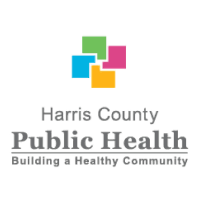With the Thanksgiving holiday upon us, Harris County Public Health (HCPH) would like to remind residents of safe food preparation practices. Some families may be thinking about rinsing our turkeys and putting stuffing in them, but it is not safe. Chickens and turkeys can have salmonella, a type of bacteria that can cause serious stomach problems and occasionally death. Rinsing a turkey or chicken can spread salmonella into the sink or kitchen counters, where it can contaminate other food or dishes.
Cooking your turkey to 165˚F will kill any salmonella. However, cooking your turkey to a safe temperature (165˚F) will not ensure that any stuffing you put inside it in will reach a safe temperature, HCPH recommends to cook your stuffing separately. HCPH has tips to help you celebrate without risking foodborne illness.
Food safety begins when you put your food in your grocery cart. Check expiration dates to make sure the food is fresh and will last until you plan to use it.
- Before you shop, make room in your fridge and freezer for your groceries
- Separate fruits and vegetables from raw meat and poultry in your grocery cart and at home
- Pay attention to labels and manufacturer instructions
- Wash your hands thoroughly with soap and water for at least 20 seconds before and after handling food
- Clean surfaces between each food preparation step
- Use a clean utensil for each food item
- Use a food thermometer and cook foods to the correct internal temperature:
| – Beef, Pork, Veal, Lamb (Roast, Steak, Chops) | 145⁰F |
| – Ground Beef or Pork | 155⁰F |
| – Poultry, Ground Poultry, Stuffing, or Casseroles | 165⁰F |
- Keep hot foods hot at 135⁰F or higher and keep cold foods cold at 41⁰F or below
- Put foods away in the fridge within two hours after serving
Handling poultry (chickens and turkey) incorrectly or undercooking are common problems that can lead to foodborne disease outbreaks
- Prepare your turkey safely:
– While frozen, a turkey is safe. Allow plenty of time to defrost the turkey below 41⁰F in the fridge.
– Do not wash the turkey. Harmful bacteria may be present and can contaminate other areas in the kitchen.
– Use separate cutting boards, knives, plates, and utensils to handle raw poultry
Enjoy the togetherness and do not let unsafe food ruin the holiday. Visit the Centers for Disease Control and Prevention for additional food safety recommendations. If you have any questions or concerns, please contact the Environmental Public Health Division at 713-274-6300. HCPH wishes you a safe and healthy Thanksgiving!


